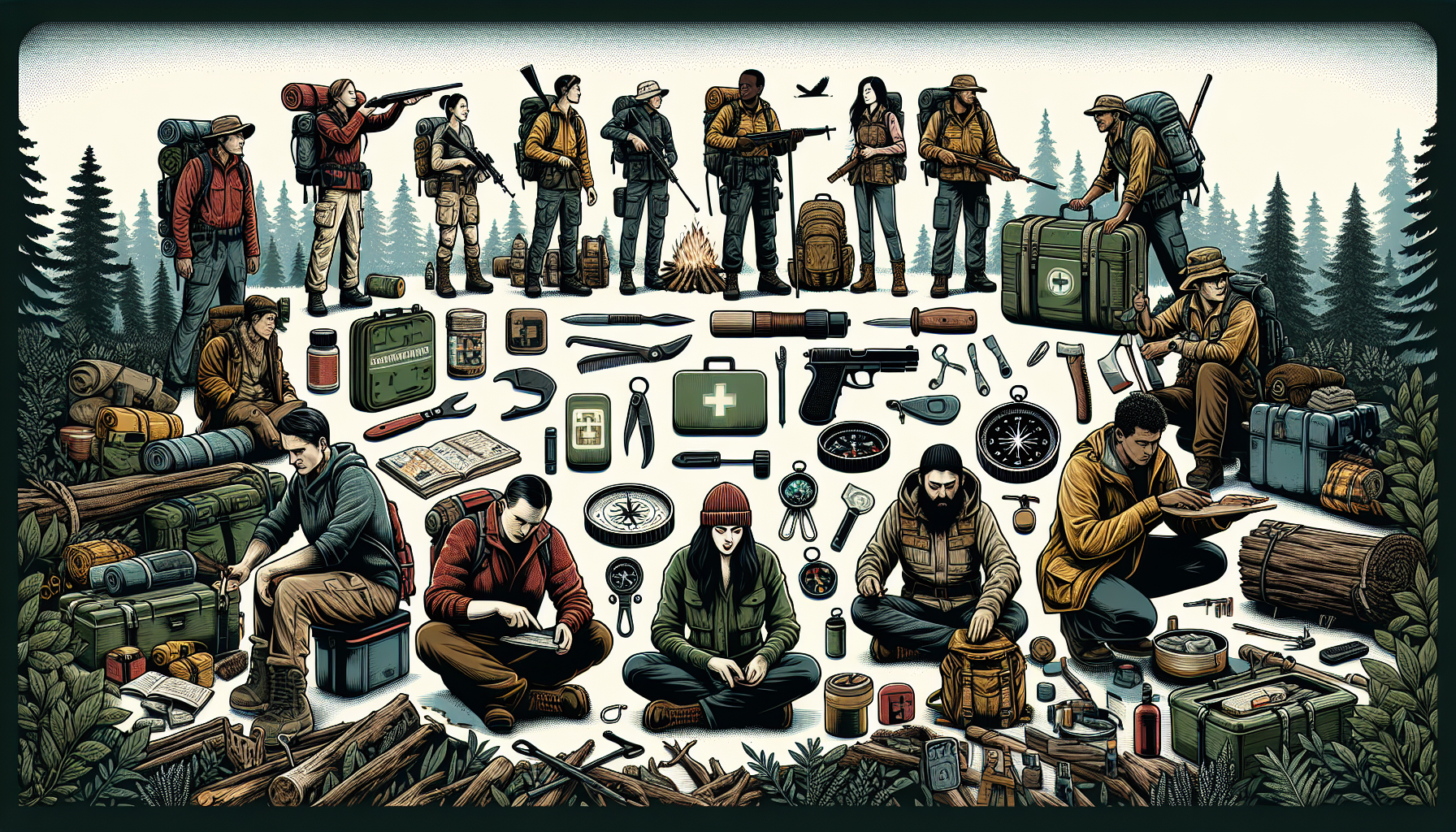Imagine being out in the wilderness, completely disconnected from the comforts of modern life. You rely solely on your own skills and instincts to survive. This is the world of a basic survivalist. But who exactly is a basic survivalist? What drives them to leave behind the convenience of society and embark on a challenging journey into the unknown? In this article, we will delve into the mindset and characteristics of a basic survivalist, uncovering what makes them truly unique in their pursuit of self-reliance and survival in the wild.
Who Is A Basic Survivalist?

What is survivalism?
Survivalism is a mindset and lifestyle that focuses on being prepared for various potential emergencies and disasters. Those who embrace survivalism, known as survivalists, believe in taking proactive measures to ensure their safety and well-being in case of unforeseen circumstances. While some may associate survivalism with extreme behaviors or an obsession with doomsday scenarios, the reality is that basic survival skills and preparedness can benefit anyone regardless of the extent to which they choose to take it.
Basic survival skills
Basic survival skills are essential for anyone looking to become a basic survivalist. These skills include knowing how to build a fire, find and purify water, navigate without the use of technology, forage for food, and administer first aid. By mastering these fundamental skills, you can increase your chances of survival in a wide range of scenarios, whether you’re facing a natural disaster or simply getting lost in the wilderness.
Self-sufficiency
Self-sufficiency plays a significant role in survivalism. It involves learning how to grow your own food, becoming proficient in DIY skills, and developing strategies for generating power and accessing clean water. By embracing self-sufficiency, you reduce your reliance on external resources and become more self-reliant in times of crisis. Additionally, cultivating your self-sufficiency skills can also have a positive impact on your everyday life, reducing your ecological footprint and fostering a sense of independence.
Preparing for natural disasters
One of the core principles of survivalism is being prepared for natural disasters. Whether it’s hurricanes, earthquakes, floods, or wildfires, these events can strike unexpectedly and leave communities devastated. Basic survivalists understand the importance of having a well-thought-out plan in place that includes emergency supplies, communication strategies, and evacuation routes. By being prepared, you not only increase your chances of survival but also minimize the potential impact of these disasters on your life and the lives of your loved ones.

Survival mindset
A survival mindset is crucial for anyone seeking to become a basic survivalist. It involves cultivating the ability to stay calm under pressure, make quick decisions, and adapt to changing circumstances. Developing a survival mindset means being mentally prepared to face challenging situations and embracing a problem-solving attitude. By maintaining a positive and resilient mindset, you increase your chances of overcoming obstacles and surviving in even the most adverse conditions.
Building a survival kit
Building a well-stocked survival kit is an essential step for every basic survivalist. A survival kit should include items such as food, water, first aid supplies, tools, shelter materials, communication devices, and personal protection items. The contents of a survival kit will vary depending on individual needs and the specific scenarios one is preparing for. Regularly reviewing and refreshing your survival kit is also crucial to ensure that everything is in proper working order and is not expired.
Wilderness survival
For many survivalists, wilderness survival is a key area of focus. Learning how to navigate through dense forests, find shelter, build traps for food, and identify edible plants are valuable skills in the wilderness. Survivalists often take courses or participate in outdoor activities to enhance their wilderness survival skills, as these skills can be life-saving if one finds themselves stranded or lost in remote areas.
Urban survival
Survivalism is not limited to the wilderness — it extends to urban environments as well. Urban survival skills include knowing how to secure your home, defend yourself when necessary, navigate through crowded areas during emergencies, and adapt to limited resources. Understanding the unique challenges posed by urban environments and being prepared for potential disruptions in services or infrastructure is crucial for basic survivalists living in cities or densely populated areas.
Prepping vs. hoarding
It is important to recognize the distinction between prepping and hoarding. While prepping involves acquiring the necessary supplies and skills to ensure your safety and well-being in times of crisis, hoarding is the excessive accumulation of items without any clear purpose or organization. Basic survivalists focus on thoughtful preparation, acquiring what is necessary and useful while avoiding excessive accumulation. The goal is to be prepared, not overwhelmed with unnecessary possessions.
Survivalist communities
Survivalist communities, also known as prepper communities, are groups of individuals who come together to share knowledge, resources, and support each other in their survivalist endeavors. These communities provide a sense of community and a platform for sharing ideas, skills, and experiences related to survivalism. Joining a survivalist community can help you learn from others, find like-minded individuals, and enhance your overall preparedness.
In conclusion, a basic survivalist is someone who embraces a preparedness mindset, learns essential survival skills, and takes proactive measures to ensure their safety and well-being in a variety of situations. By focusing on self-sufficiency, preparing for natural disasters, cultivating a survival mindset, building a well-stocked survival kit, and developing proficiency in urban and wilderness survival, you can be better equipped to handle emergencies and navigate through challenging circumstances. Remember, survivalism is about being prepared, not paranoid, and by taking basic steps to enhance your preparedness, you can increase your chances of survival and peace of mind in an uncertain world.
